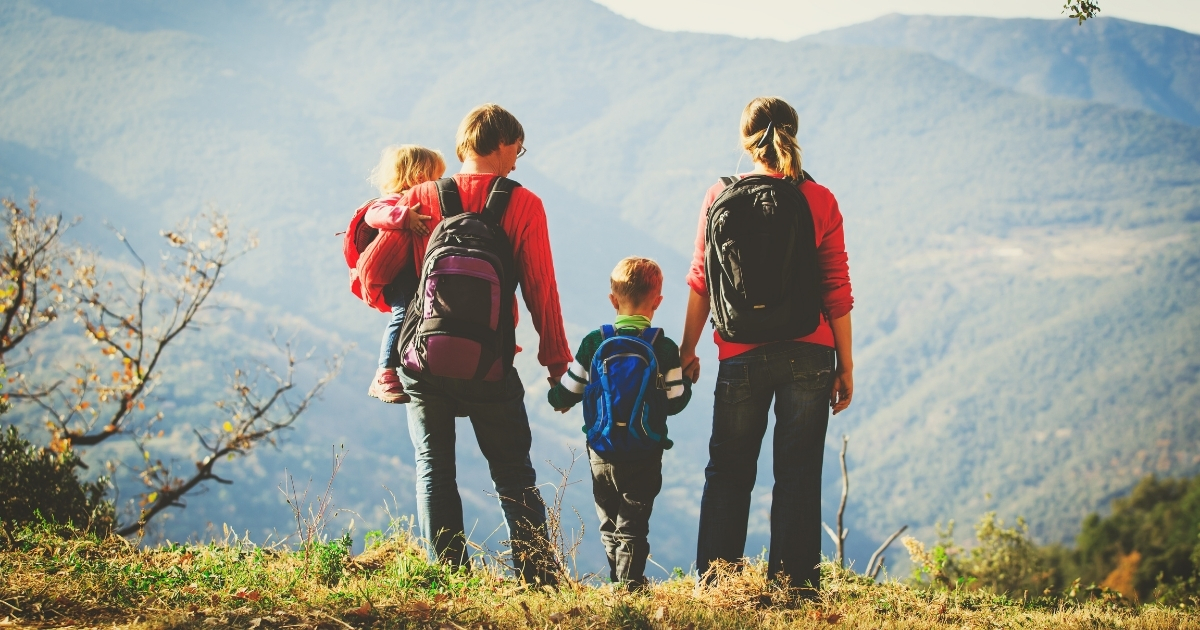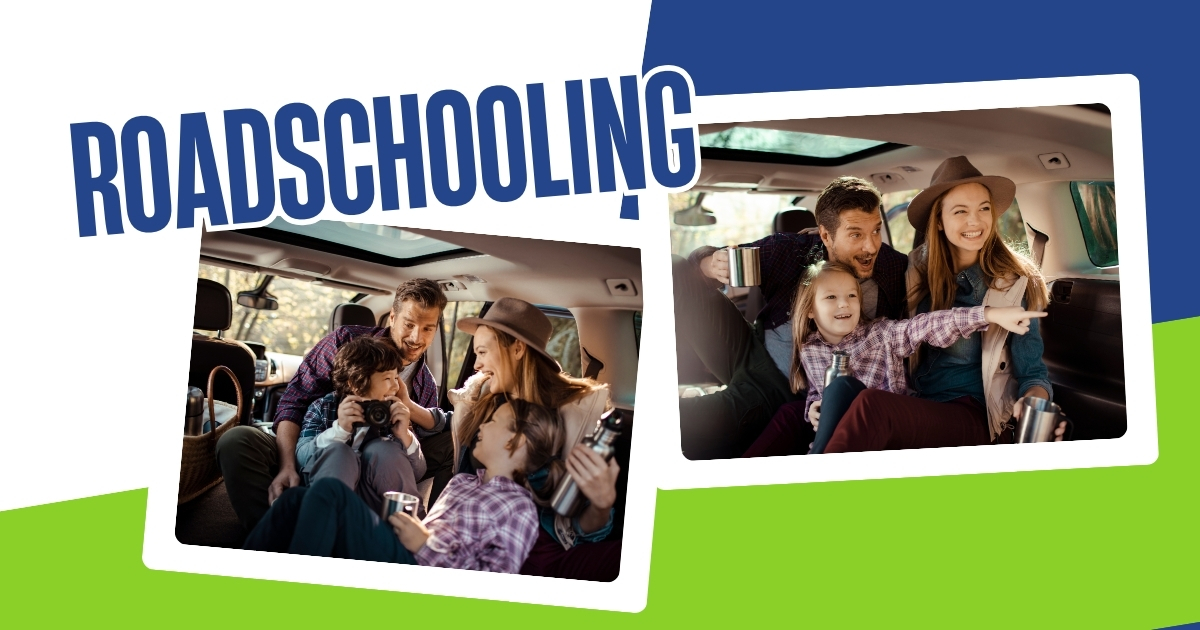Homeschooling opens up a world of flexibility for families, and that freedom can include something extraordinary: roadschooling. If you’ve dreamed of hitting the road, exploring new places, and teaching your kids along the way, roadschooling might be for you. Combining travel and education, roadschooling provides unique benefits for families, fostering meaningful connections, real-world learning, and unforgettable experiences.
Here’s how to make the most of the benefits roadschooling offers to families, with practical advice on keeping things simple and educational while exploring new horizons.
Why Roadschooling Works For Families
Roadschooling combines the flexibility of homeschooling with the adventure of travel. It empowers families to shift their classroom to wherever the road takes them. Here’s why this approach works so well for families:
- Hands-On Learning Opportunities: Traveling allows kids to engage with subjects in real, tangible ways. Visiting historical landmarks, touring science museums, or exploring natural wonders makes lessons come alive in ways no textbook can. For example, studying U.S. history while touring Washington, D.C., offers kids a deeper understanding of the nation’s past through firsthand experiences.
- Fostering Global Awareness: Kids develop a broader perspective on cultures, customs, and worldviews by visiting different states or countries. This immersive exposure helps them appreciate diversity and understand global connections.
- Flexible Schedules: Homeschooling already has the benefit of customized schedules, but roadschooling takes that a step further, letting families design their educational routines around destinations and experiences. For instance, mornings can be spent on math lessons, while afternoons are reserved for exploring National Parks.
- Strengthened Family Bonds: Time spent traveling promotes stronger connections. Roadschooling families often find that shared adventures bring them closer as they experience new places, solve problems together, and create lifetime memories.
- Teaches Adaptability: Traveling naturally exposes kids to change, whether it’s navigating a new city, adjusting to an unfamiliar environment, or learning to plan on the go. These experiences teach resilience and flexibility, valuable life skills for any child.
By combining travel and education, roadschooling makes learning immersive and fun. Families unlock a new level of freedom while fostering curiosity and growth in their children.

Traveling And Homeschooling Made Easy
Venturing into roadschooling may feel daunting at first, but with a little preparation, it’s easier than it seems. The key is to keep things organized and prioritize both learning and fun. Here’s how to simplify the process:
- Invest in Portable Learning Tools: Look for lightweight and portable homeschooling essentials like a laptop, e-reader, or compact whiteboard. Digital resources, such as online curriculums and educational apps, are a lifesaver for parents on the move. Programs like Khan Academy or Duolingo can cover various subjects without requiring heavy books.
- Plan Around Educational Destinations: Choose destinations that align with your kids’ current curriculum. If they’re studying marine biology, visit aquariums or coastal areas. If they’re learning about the Civil War, seek out battlefields and historical reenactments. Educational trips and family vacations can overlap beautifully.
- Create a Workspace System: Even in small spaces like an RV or hotel room, it’s important to have a defined learning area to help kids focus. Portable desks, trays, or fold-down tables can create instant workspaces.
- Stick to a Routine: While the flexibility of roadschooling is wonderful, having a loose daily routine ensures kids stay on track academically. Mornings might involve structured lessons, while afternoons are for exploring. Consistency helps maintain momentum.
- Utilize Library Cards and Museums: Get library cards at local stops to borrow books and resources. Many libraries also offer free Wi-Fi, workspace, and helpful librarians who can guide you toward educational events in the area. Cultural passes from libraries can even grant free admission to museums and other attractions.
- Practice Minimalism: When you’re packing for travel, less really is more. Stick to multi-use items and focus on essentials for both school and leisure. A well-organized educational tote or backpack ensures quick access to all the learning materials you need.
- Stay Connected With Homeschool Communities: Many families are taking the roadschooling path today. Online homeschooling forums or local Facebook groups can help you connect with other roadschoolers, share tips, and arrange meetups.
By taking manageable steps and being flexible, your family can move from a beginner’s mindset to confident roadschooling pros in no time.
Educational Travel Tips For Homeschooling Parents
Combining travel with education may seem overwhelming at first, but a few practical strategies can make all the difference. Here’s how to make the most of your roadschooling experience:
- Leverage Free or Affordable Attractions: Look for national parks, local nature centers, or government-funded historical sites that offer free or discounted entry. Consider the America the Beautiful National Park Pass, which gives families unlimited access to thousands of sites.
- Use Travel Time for Audiobooks and Podcasts: Long drives are the perfect opportunity for passive learning. Audiobooks related to history, science, or literature allow students to soak up knowledge on the go. Age-appropriate podcasts can spark curiosity, too.
- Turn Vacations Into Deep Dives: When visiting a specific place, incorporate full learning units around it. For example, a trip to Arizona’s Grand Canyon could include lessons on geology, natural erosion, westward expansion, and Native American cultures. Research these topics ahead of time for meaningful teaching moments during your visit.
- Document the Journey: Having your kids keep travel logs or journals enhances their writing skills, encourages reflection, and creates a lifelong memento. They can jot down observations about each place, draw what they saw, or even pen fictional stories inspired by their travels.
- Make Financial Literacy Fun: Traveling provides a unique opportunity to teach budgeting, currency exchange, or cost comparisons. Getting kids involved in planning expenses for a trip allows lessons about math and money to naturally unfold.
- Capture Learning With “Education Kits”: Consider packing kits tailored for subjects like science or art. A small magnifying glass, notebook, and field guide can spark the study of insects or plants while hiking. Art kits with sketchbooks and colored pencils let kids draw what they observe in different environments.
- Tap Into Local Experts: Some of the best lessons come from interacting with locals who can provide unique insights. Park rangers, museum guides, or cultural performers may have entertaining and educational anecdotes to share. Be sure to ask questions and engage fully in these experiences.
By carefully planning educational activities alongside your travel plans, you can transform every trip into a rich learning experience.
Making The Most Of Roadschooling For Families
A big part of what makes roadschooling special is how it blends education with exploration in a way that feels seamless. For parents, it’s about finding that balance between structure and spontaneity. For children, it can ignite a lifelong passion for learning and adventure.
Roadschooling helps kids experience history in motion, science in nature, and culture through engagement. When lessons are tied directly to their travels, kids internalize knowledge more deeply. Imagine discussing the physics of geysers at Yellowstone or learning geometry by measuring the angles of ancient structures. These moments bring out the best in learning by making it relatable.
Additionally, this lifestyle lets parents create invaluable memories with their kids. Travel builds shared stories and teaches teamwork. Whether it’s navigating a map together, preparing meals in a campervan, or solving an unexpected challenge on the road, each moment becomes part of the family’s collective learning experience.
When families leave behind the confines of a classroom, they gain the freedom to explore at their own pace. The result? Children who are curious, informed, and better prepared for the world. That’s the true benefit of roadschooling.





